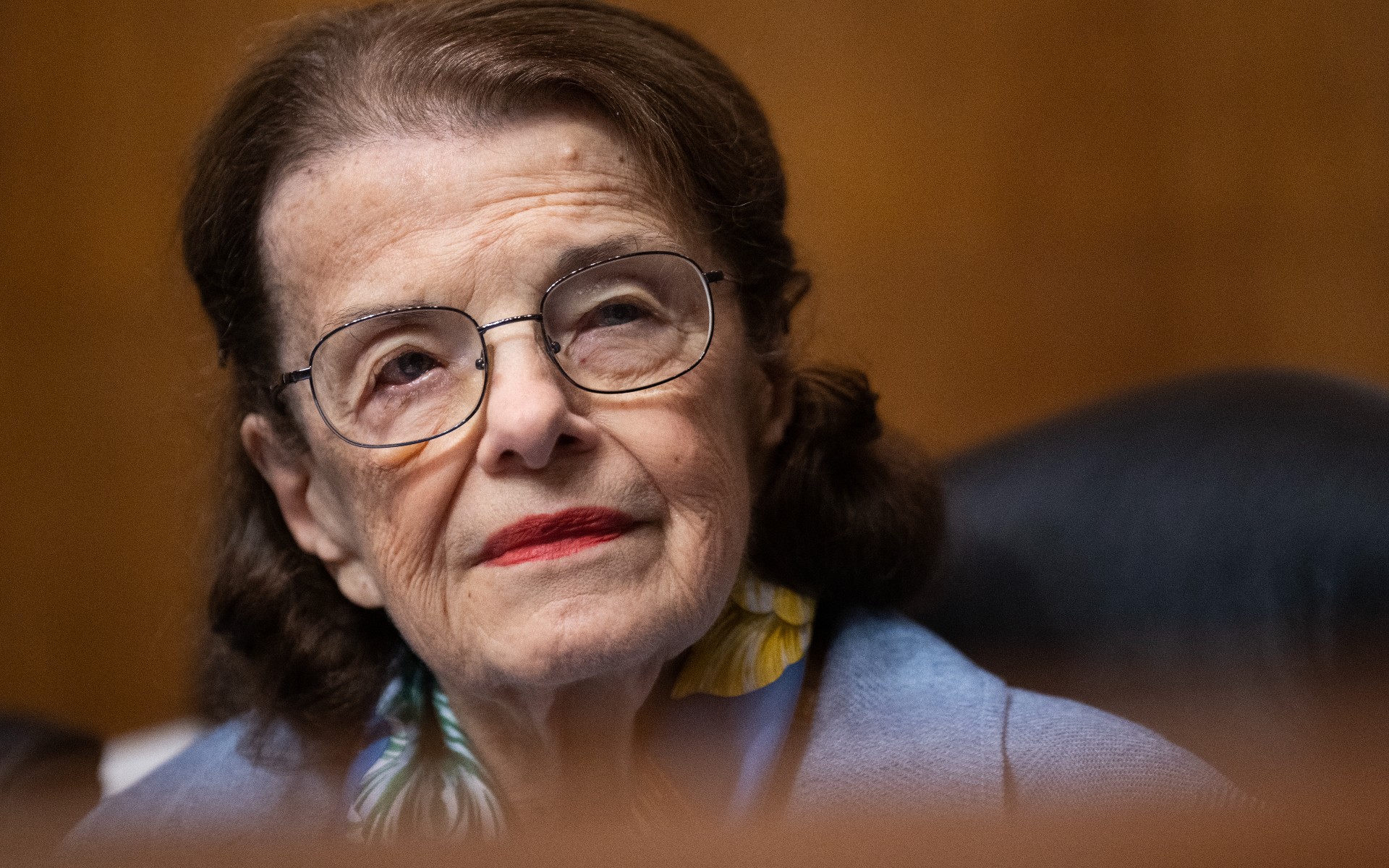Dianne Feinstein, history-making Democratic US senator, dies at 90
Her colleagues celebrate her legacy as a trailblazer who cleared the path for other women to follow


A free daily email with the biggest news stories of the day – and the best features from TheWeek.com
You are now subscribed
Your newsletter sign-up was successful
California Sen. Dianne Feinstein (D), "the trailblazing Democratic power broker" who served for 30 years, died on Thursday night, according to sources close to her, The New York Times reported. She was 90 years old.
The longest-serving woman in U.S. Senate history, Feinstein broke several glass ceilings throughout her lifetime as a political servant. However, several recent health issues have made her the target of increased scrutiny over her age and mental capacity, prompting some to call for her resignation. After a lengthy bout with shingles and complications related to the virus led to a three-month absence, Fenstein returned to Capitol Hill, using a wheelchair to get around. She eventually announced that she planned to retire at the end of her term.
“There are few women who can be called senator, chairman, mayor, wife, mom, and grandmother," her office said in a statement on X, formerly known as Twitter. "Senator Feinstein was a force of nature who made an incredible impact on our country and her home state."
The Week
Escape your echo chamber. Get the facts behind the news, plus analysis from multiple perspectives.

Sign up for The Week's Free Newsletters
From our morning news briefing to a weekly Good News Newsletter, get the best of The Week delivered directly to your inbox.
From our morning news briefing to a weekly Good News Newsletter, get the best of The Week delivered directly to your inbox.
An 'eloquent champion of civil rights and gun control'
A San Fransisco native and Stanford graduate, Feinstein began her political career in 1969 when she was elected to the San Francisco County Board of Supervisors, becoming its president in 1978. After two failed bids for mayor, she became the city's first woman mayor in 1978, following the double assassination of Mayor George Moscone and Supervisor Harvey Milk. She held the position for two terms until 1988. After losing a race for governor in 1990, Feinstein was elected to the Senate in 1992, becoming "California's longest-serving senator and its first woman elected to the chamber," Reuters reported. With three other women joining her in the chamber, the year she was elected was deemed the "Year of the Woman."
The senator was "an eloquent champion of civil rights and gun control who defended and also denounced national security measures in the age of terrorism," Robert McFadden wrote in The New York Times. She was a vocal advocate for gun control measures, championing the 1994 assault weapons ban former President Bill Clinton signed into law, "both a landmark bill and a continuation of a career-long effort to enact stricter gun controls," CNBC noted. As chairwoman of the Senate Intelligence Committee, another historic first, she led a review of the CIA's post-9/11 detention and interrogation program, publishing a report in 2014 that led to legislation prohibiting the methods of torture used.
Known for being a centrist, the Democrat earned a reputation as "someone eager to work across the aisle with Republicans, and at times sparked pushback and criticism from progressives," CNN reported. In a 2017 interview, Feinstein told CNN she believed "that there is a center in the political spectrum that is the best place to run something when you have a very diverse community." That reputation made her popular, "but much of that popularity eroded in the proceeding years as California’s political tint shifted toward deeper shades of blue," NBC News wrote.
The decline of a 'political giant'
Feinstein's health and age became a major focus of the latter years of her tenure as a senator. In April 2022, the San Francisco Chronicle published a report citing unnamed fellow Democrats and colleagues who expressed concern over whether she was mentally unfit to continue holding office."I remain committed to do what I said I would when I was re-elected in 2018: fight for Californians," Feinstein said in her defense.
A free daily email with the biggest news stories of the day – and the best features from TheWeek.com
A hospitalization for shingles in February and a three-month absence revived concerns about Feinstein's position earlier this year. Her team later reported that the virus led to complications, including encephalitis, per CNN, and she was hospitalized again in August after a fall. Speculation about her retirement "led several Democrats to announce their candidacies for her seat — even before she announced her plans," the outlet noted.
Her colleagues fondly remembered the senator after news of her death broke Friday morning. California Gov. Gavin Newsom (D) called her a “political giant, whose tenacity was matched by her grace.” per CNBC. “We lost a giant in the Senate,” Senate Majority Leader Chuck Schumer (D-N.Y.) reportedly said on the chamber floor.
Theara Coleman has worked as a staff writer at The Week since September 2022. She frequently writes about technology, education, literature and general news. She was previously a contributing writer and assistant editor at Honeysuckle Magazine, where she covered racial politics and cannabis industry news.
